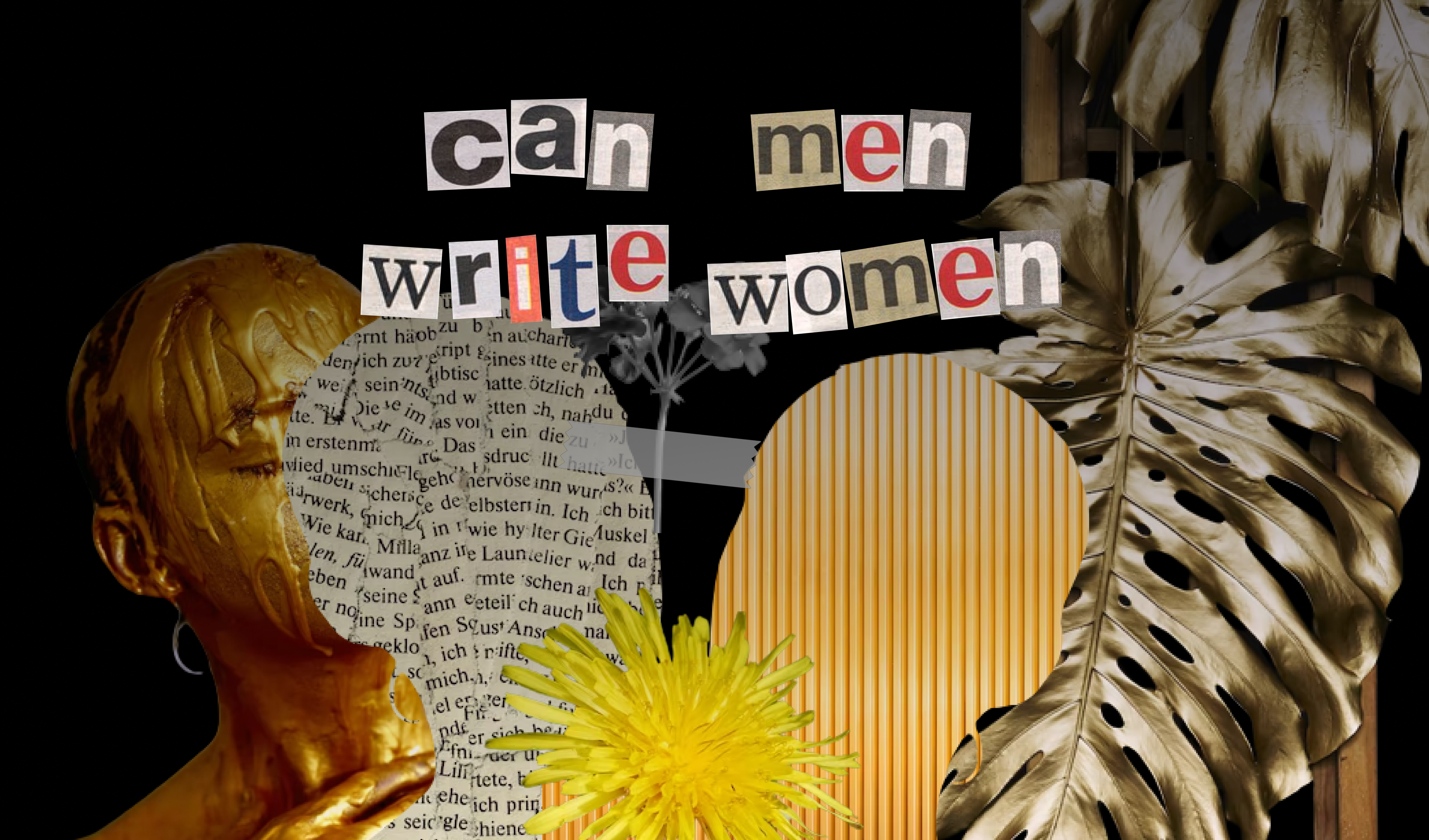

Body of IITR

We’ll begin with fantasy. There’s a thin line between being born with a uterus and being dragged through the world’s fixed ideas of womanhood. There’s an even thinner line between what it means to be a woman to oneself, and what it means to be a woman to the world, to men, or even to your mother.
Fantasy bleeds. Through everything, and the most, through art. Unchecked, 200 years of cinema played out as Man’s unabridged fantasy. The real question here is whether cinema is the work of imagination or of reality. Was Kabir Singh just a story of a real man or a deliberately romanticised version of it? And is that context the audience’s responsibility or the writer’s? Does the film-writer simply look to his world and recreate it for the screen, or is his job simply to dream?
But what about the little girl that watches a man’s ideals of womanhood unfold on the screen and rewire all of herself trying to grow into that woman? The shallow character with barely any agency or motive except to serve the male character’s character arc. What happens when all women on the screen are reduced to plot devices at best- an amalgamation of ill-conceived tropes and cliches? When women are only written through a patriarchal lens, or rather, the ‘male gaze’, reduced to objects defined only to please the heterosexual male?
So, we ask, ‘Can men write women?’ and conclude that they haven’t. That if you can’t write about something you haven’t experienced, then in all that men have attempted to write, they simply haven’t written a real woman- they’ve only written the idea of women that they know.
But ah, who is the real woman?
Let’s talk about Lady Bird. Everyone has watched Lady Bird before they’ve watched Lady Bird- it’s a story that seems to be in all of us, the universality of the mother-daughter dynamic, adolescence’s fleeting nothings, the beginning of a lifetime. It’s recognised, it’s familiar, and yet, what the director, Greta Gerwig, does is hardly a job of representing the universal experience of girlhood. Most of Gerwig’s work has been noted for its distinctly white point-of-view.
This is more apparent in the work of writer-director, Sofia Coppola, known for employing a ‘feminine’ gaze in tackling themes of loneliness and privilege in America. But while she does a great job of representing the delicate microcosm of wealthy, white girlhood, her confined upbringing results in oversights. For The Beguiled, a movie set during the American Civil War, she faced a lot of criticism for ‘whitewashing’ the original story. She almost completely dropped even any mention of slavery, wrote a black character out of the script, and focused on the one type of experience she does know like the back of her hand- that of fragile, privileged, white women in a tumultuous time.
Intersectionality is the practice of studying oppression through a more inclusive lens and understanding how multiple political identities of different minorities overlap to create more complex systems of discrimination. In simply erasing some of the most important context of that period instead of putting in the effort to view the story through a more intersectional framework, Sofia Coppola’s adaptation doesn’t represent womanhood and female desire the way the book did. Regardless, the movie does a great job of representing the fraction of womanhood that it does represent.
So even a woman writer can really, only write for one female experience i.e., her own. And that’s the thing, popular feminist theorists throughout history, from Beauvoir to Butler, have disagreed on a singular universal experience of womanhood. Women are varied, ugly, unpredictable, beautiful, uncontained, rational, shy, composed, and hysterical all at once.
What women need is not for men to write better or positively represented female characters. What women need are seats at the writing table. What we need is not a refinement of the male gaze, but a dismantling of the male-ness of the gaze. We need for female fantasies to bleed through the screen the same way male fantasies have for centuries now.
Conversations about representation have been mostly limited to the screen, and to characters- not enough about the entirety of the process of film making. Black writers have defended The Beguiled in that it represents the narrow, shallow, and selfish nature of white desire so well that it does, in fact, function as striking commentary about race. They follow this up with a call for the industry to enable black women writers to take on the task of actually representing black femininity.
Here, we first ask writers to understand that they write best about lived experiences, and also the harms of incorrectly representing an experience. Next, we try to dismantle the disadvantages minority writers face within a film industry that stifles their voices. Finally, for movies with the aim of representing a diverse variety of intersecting experiences, the secret is collaboration.
There should be a general shift from auteur and single-brain driven movies to more diverse writing teams. We begin to see film-making as not just a movie-manufacturing machine but an unpredictable process of growth and learning that comes from sharing experiences. Rooted in the simple joy of creating a recognisable world within a camera and a few cuts, this shift would save cinema from being lost to the hands of a privileged few. Instead, we could ground cinema in real people- their stories and dreams.